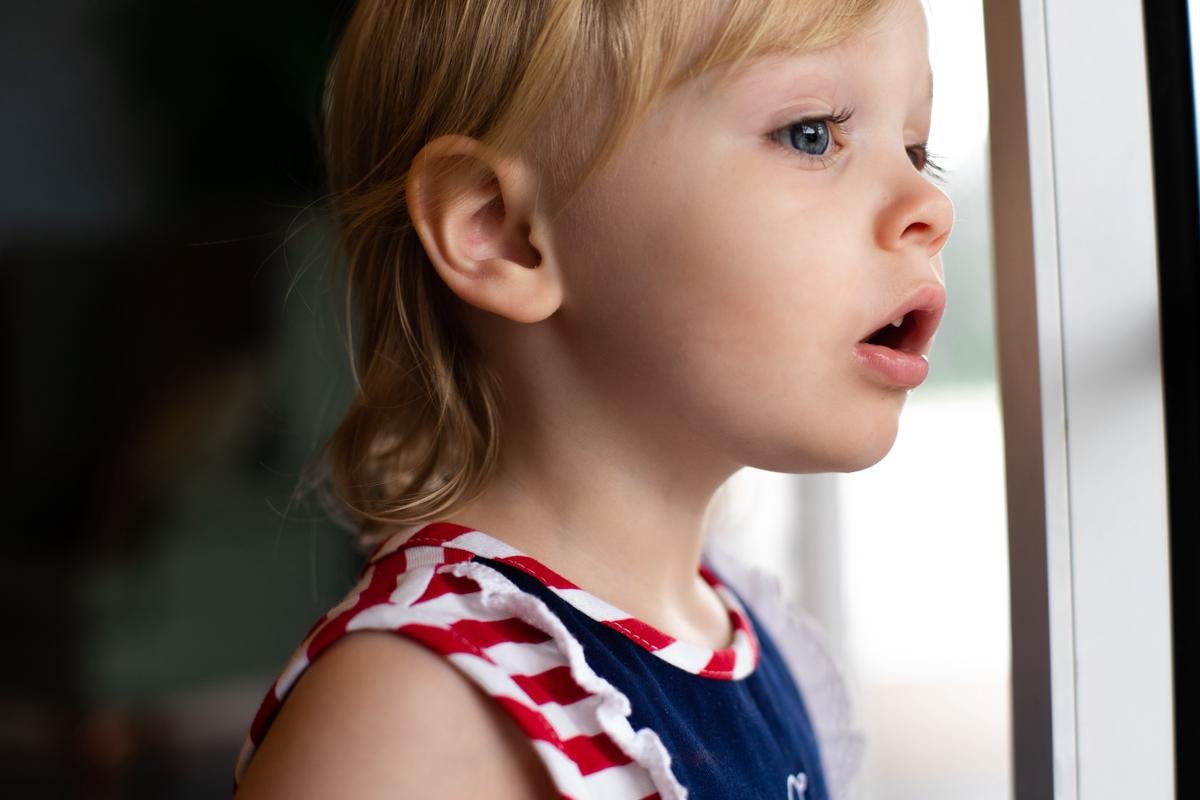
The intricate relationship between autism and sleep can be a complex realm to understand, yet its exploration can lead to a profound understanding of child development and well-being. Autism Spectrum Disorder (ASD) inherently presents unique behavioral, social, and communication challenges in children. One interconnected aspect that significantly influences these issues is the sleep cycle. Sleep is a quintessential component for all children’s overall health, development, and cognitive function. However, for children on the autism spectrum, it attains unparalleled precedence given its direct impact on behavior and symptom management. The subsequent sections strive to dissect this relationship further, elaborating on usual sleep patterns in children with autism, the ramifications of sleep deprivation, and possible strategies for sleep intervention, capped off by supportive advice for parents. The end goal is to provide knowledge and understanding that can serve as a useful resource in managing the challenges related to autism and sleep.
Understanding Autism and Sleep
Unraveling the Tangled Sheets: Autism and Your Child’s Sleep Cycle
Parenting is a heroic journey filled with joy, anticipation, laughter, and sometimes concerns and anxieties. One area where you might experience the latter is while monitoring your child’s sleep, especially if your little one is on the autism spectrum.
So, here’s the skinny on autism and sleep. Research indicates that children with autism may experience unique sleep difficulties, something all parents should be armed with and have strategies to help manage.
Now, the crucial question on every parent’s mind: How does autism affect a child’s sleep cycle?
Sleep difficulties are unfortunately common among children on the autism spectrum. These can range from inconsistent sleep routines and restless sleep to prolonged periods of wakefulness at night. These sleep issues can have a massive impact on your child’s behavior, emotional wellbeing, and overall cognitive development. Moreover, a poorly rested child can lead to a rather tired family as a whole!
So, why do children with autism tend to struggle more with sleep? There’s no one-size-fits-all answer to this. Researchers have suggested a multitude of factors, including increased sensitivity, heightened anxiety levels, difficulty with the transition to sleep, and irregularities in the body’s sleep-wake rhythm, the circadian rhythm. Scientists have also observed lower levels of melatonin in children with autism; melatonin is the hormone that signals our body it’s time to sleep.
Now that we’ve delved into the whys, the next logical step is, how do we assist our little ones in combatting these sleep difficulties? The approach has to be two-fold: behavioral and environmental. Yes, it’s time for beautiful solutions to meet hands-on parenting, folks!
Firstly, establishing a consistent sleep routine is like dropping breadcrumbs for good sleep health. It helps anchor your child’s internal body clock and cue when it’s time to get sleepy.
Secondly, create a conducive sleep environment. Reduced noise levels, dimmed lights, and comfortable room temperature can help minimize sensory disruptions for a child with autism. A well chosen stuffed animal or blanket can also provide a sense of security and familiarity.
Considering modifying your child’s diet is another valuable approach. Certain foods may interfere with your child’s sleep cycle – for instance, those high in processed sugars. A balanced diet, on the other hand, can contribute to a more serene night’s sleep.
Lastly, leveraging therapeutic approaches might also prove beneficial. Occupational therapy, sleep-specific cognitive-behavior therapy, and mindfulness relaxation techniques can assist in fostering healthy sleep habits in children with autism.
Let’s underscore that while these steps might prove fruitful, they require patience, perseverance, and, most importantly, understanding.
Remember, you’re not alone in this. Reach out to healthcare professionals, therapists, or even communities of parents dealing with similar circumstances for some invaluable advice, necessary handholding, or just a listening ear. Let’s tackle this, one restful night at a time.
To the champions of the night and the shapers of dreams: Happy Parenting!

The consequences of Sleep Deprivation
Children, when blessed with the gift of sleep, blossom like a flawlessly pruned flower. However, when we consider the correlation between sleep deprivation and youngsters with autism, the situation becomes significantly more complex. We’ve been discussing what that means, and now let’s turn our attention to the specific impacts of sleep deprivation on our little ones with autism.
Comprehending the profound consequences of sleep deprivation involves understanding how depleted sleep can dramatically affect children with autism in comparison to who don’t experience these challenges. There’s no denying that all children face repercussions when they don’t meet their sleep requirements, but for those with autism, these repercussions can be far more severe, impacting their normal everyday functioning to a higher degree.
Often, many psychical health issues are intertwined with autism. Sleep deprivation can intensify these existing health complications, leading to elevated discomfort and stress, ultimately lowering the overall quality of life. Chronic sleep deprivation can result in the exacerbation of gastrointestinal issues, a problem often found among children with autism. In addition, poor sleep patterns can be closely linked with seizure disorders, a concerning health problem also not uncommon in autism cases.
Cognitive abilities such as memory, concentration, and learning can also be affected by a lack of sleep. Children with autism who are sleep deprived may face heightened challenges in remembering or processing information, directing their attention, and thinking creatively. Such cognitive impairment may also lead to academic struggles, creating a vicious cycle of stress and sleeplessness.
Further complicating this picture is the impact of sleep deprivation on social communication, which often poses a critical challenge for children with autism. A lack of sleep can lead to even more significant struggles with social interactions, making them feel frustrated, isolated, and misunderstood. Additionally, poor sleep might also exacerbate repetitive behaviors, a hallmark of autism spectrum disorder.
Though many children with autism experience some degree of sleep disruption, elevated stress, and anxiety, these are not unmanageable situations. Understanding how sleep deprivation exacerbates the challenges associated with autism is the first step. By now, we’ve done that. The next step involves proactively seeking solutions and remaining hopeful and supportive as a family and a community.
In a nutshell, lack of sleep impinges severely on children with autism, causing amplified behavioral, emotional, cognitive, and physical challenges. Still, this isn’t the end of the journey. As Aristotle got it right, “Knowing yourself is the beginning of all wisdom.” And we couldn’t agree more. It’s significant to foster empathy, understanding, and patience in meeting the unique needs of our children and enabling them to reach their fullest potential. Isn’t that what parenting, love, and life is all about? Of course, it is.

Sleep Intervention Strategies
Just like any other child, children with autism derive a multitude of benefits from a good night’s rest. That being said, it can undoubtedly be a challenge to help them build and maintain healthy sleep habits. What we have to remember is that this is not an unsurmountable obstacle. Even a small stride towards success can bring an immense improvement in the quality of their lives.
While the go-to strategies of routine establishment, sleep environment optimization, dietary changes, and therapeutic interventions are well-documented and certainly effective, there are additional tactics that might provide some supplemental assistance.
One highly effective strategy often overlooked involves incorporating physical activity into the child’s daily routine. Research suggests children with autism who participate in regular physical activities during the day sleep better at night. The activity not only tires them out but also regulates their internal body clock, encouraging a more normalized sleep-wake cycle.
If your child is receptive to tech-tools, consider trying smartphone and tablet apps dedicated to sleep improvement. These apps often provide relaxing sounds or guided meditations that are great for winding down before bed. Some also offer sleep tracking, which can offer insightful data to further fine-tune sleep strategies.
Promoting self-soothing methods could be another effective tactic to tackle sleep difficulties. Gently training the child to self-soothe when they wake up during the night instead of immediately seeking parental comfort can reduce nighttime wakings. This can often be achieved through gradual withdrawal methods where parent presence is progressively reduced over time.
Another strategy revolves around the use of weighted blankets. The extra weight can have a calming effect, helping to reduce anxiety and improve sleep. However, it’s important to seek advice from a healthcare professional before introducing a weighted blanket to ensure it is safe and suitable for your child.
For children with autism, it is also beneficial to address any potential sleep disorders such as sleep apnea, insomnia, or restless leg syndrome. Obtaining a thorough medical evaluation can help diagnose these conditions and provide steps towards effective treatment, often leading to profound improvements in sleep quality.
Finally, consider joining a support group, either in your local community or online. Parents navigating similar challenges can be an extraordinary source of practical advice, empathy, and understanding. It’s a comforting reminder that you’re not alone in your journey, and the collective wisdom can lead to more effective problem-solving.
Remember, everyone’s journey is unique, and what works for one child might not work for another. It’s about trying different strategies, noting what works, and more importantly, being kind to yourself through the process.
Remember, success in this area won’t be overnight, but the reward is worth the effort. So let’s approach this with a generous sprinkle of patience, understanding, and a spirit of trial and error. You’ve got this!

Parenting Tips and Emotional Support
One sometimes overlooked aspect when discussing and supporting children with autism is the matter of physical exercise. Keeping your child active during the day can greatly assist in improving their sleep behaviors. Studies have shown that physical activity not only helps in reducing insomnia, but also in improving the overall quality of sleep. When feasible, encourage your child with autism to engage in regular exercise. It might be as simple as going for a walk, jumping on a trampoline, or even a short game of catch. The aim is to constructively drain their energy levels, so that they are naturally tired and ready for sleep by bedtime.
However, it’s important to remember that these activities should not be too close to bedtime as they may over-excite your child and make it more difficult for them to wind down.
The tremendous advances in technology have gifted us some useful tools that can aid in resolving our little ones’ sleep woes. There are a plethora of smartphone and tablet apps dedicated to aiding sleep. Some of these applications employ soft music or soothing sounds to help induce sleep, while others serve to monitor your child’s sleep and provide data on their sleep patterns.
Another effective means to promote a sound sleep is through self-soothing techniques. Teaching your child strategies to comfort themselves when they wake during the night can reduce nighttime wakings. These methods could include deep breathing exercises, reciting a comforting mantra, or having a small, soft toy to cuddle.
Weighted blankets have seen a surge in popularity recently, and for good reason. They’ve proven effective in providing a ‘hug-like’ sensation, providing both comfort and a calming effect. These blankets help to naturally reduce anxiety and can result in a longer and more restful sleep.
Amid all these strategies, it’s crucial not to overlook potential sleep disorders as the root cause of your child’s sleep challenges. If you suspect that your child may be suffering from a sleep disorder, such as sleep apnea, it’s important to consult with a healthcare provider to determine a plan of action.
Oftentimes, navigating the world of parenting a child with autism can feel isolating. Joining a support group or online community can provide the solace and understanding that only those in a similar situation can offer. Not only does this provide you with a safe space to share your own experiences and learn from others, but it also provides a sense of togetherness.
Last but not least, remember to always bring patience, understanding, and a readiness to try different strategies into your journey of helping your child achieve better sleep. Each child is unique and will respond differently to any given strategy. What may work wonders for one child may have no effect on another.
No matter your child’s challenges with sleep, remember that every stride, no matter how small, is a step in the right direction. Finding the ideal routine and strategies for your child may take some time, but the results will be a well-rested and happier child.

The interwoven challenges of autism and sleep deprivation are certainly not easy to navigate. Its difficulties are manifold, affecting children on the spectrum and their caregivers alike. However, acknowledging the issue is the first step towards effective management. This discussion covered understanding ASD’s impact on sleep, the potential fallout of sleep deprivation, useful sleep intervention strategies, and valuable parental support tips. In this multifaceted journey, it’s important to recall that while there might be numerous twists and turns, the destination: a balanced sleep cycle and improved lifestyle, is achievable. A blend of professional guidance, community support, personal patience, and resilience can be the pivot on which successful navigation turns. Remember, the role of sleep is immense, and each small victory in achieving better sleep quality can lead to a noticeable change in the child’s health and well-being.




